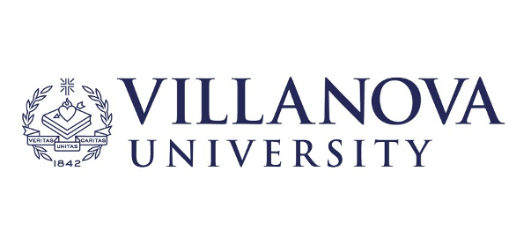Despite gaining recognition for his academic prowess, Richard felt that he didn’t want to pursue a career in the field of engineering.
He began to explore different career paths where he could still leverage the analytical and quantitative skills he had gained throughout his studies.
Pivoting to a career in finance
In any career in finance, professionals need to be good with numbers and have strong analytical and problem-solving skills. Having already developed these skills during his engineering undergraduate degree, finance seemed like a great fit for Richard.
To test the waters for this new career path, Richard attended a summer program offered by the Villanova School of Business in Pennsylvania.
Over 10 weeks, the Summer Business (SBI) Institute program explores business fundamentals from economics to finance to marketing. It was this experience that ignited Richard’s passion for finance.
“I liked that I was using the numbers and breaking down problems that I had done in engineering, but in finance it’s more of a conversation. There are different perspectives and considerations. It’s not all black and white, so that spurred the creative side of my mind,” he says.
Richard also secured an internship with Morgan Stanley as an analyst.
“Even with this experience, I really felt like if I wanted to pivot from engineering into finance, I needed a strong structural foundation,” he says.
The Master of Science in Finance program at the Villanova School of Business gave Richard the skills and knowledge he needed to make the transition.
Opening doors in my career with a Master of Science in Finance
For those interested in a career in finance, studying a Master of Science in Finance (MSF) degree offers the chance to gain a broad perspective of the industry and the skills needed to thrive.
Students in the MSF program at Villanova can also customize their degree with electives specialized towards a particular career path. Courses include Portfolio Management, Business Analytics, Commercial Real Estate Investment, and Multinational Financial Management.
However, learning theory and applying it in practice is just one way for students to open doors in their career. It’s also key to make those all-important connections—and the Villanova School of Business prides itself on offering many opportunities to cultivate a network within the finance industry.
While studying at the school, Richard took part in a business case competition with other b-schools in Philadelphia. Students across the Villanova School of Business master’s programs worked together to problem-solve and pitch a solution to industry professionals.
Opportunities such as these helped Richard to forge connections with classmates across different sectors.
“A strong network is important for a career in finance. You hear new perspectives and understand what people are seeing in different areas of the industry. Villanova was a monumental part of the network I have today,” he says.
When Richard graduated from the MSF program, he was deciding between a career in consulting or investment banking.
“The Master of Science in Finance gave me this great landscape of different careers in finance,” he says.
Richard first landed a role as an investment banking analyst at Stifel Financial Corp.
Investment banking analysts are responsible for analyzing market trends, preparing financial models, and executing transactions such as mergers and acquisitions or capital raising activities.
“The investment banking route really opened up a lot of doors,” says Richard.
After two years, he transitioned to the private equity world.
“This felt like a natural progression as I moved from the sell side and putting transactions together to the buy side, analyzing if you want to do a deal,” he says.
Gaining the structural foundation in the MSF program allowed Richard to transition easily from one role to the next, recognizing where his transferable skills made him an asset.
Launching a career as head of data at a fintech startup
As technological advancements push the finance industry to evolve, more opportunities are emerging for business school grads.
In 2022, the US fintech market reached $4 trillion and it’s expected to grow at an average annual rate of 11% between 2023 to 2028.
Taking advantage of this, Richard launched a career with Chronograph—a fintech startup in Brooklyn, New York—specializing in portfolio management and reporting for private capital investors.
Since Richard joined the company three years ago, it has grown from less than 30 people to over 100. As head of data operations, Richard manages a team of over 40 people.
“Managing a large team definitely comes with a lot of responsibilities to develop and grow managers, forge relationships, and make sure there’s strong communication throughout the organization,” he says.
Working in the fintech space is an exciting time for professionals, especially as more businesses embrace change and explore the possibilities of digital transformation.
“I’m challenged every day in my career and I’m always learning,” says Richard.
Student Reviews
Villanova School of Business








